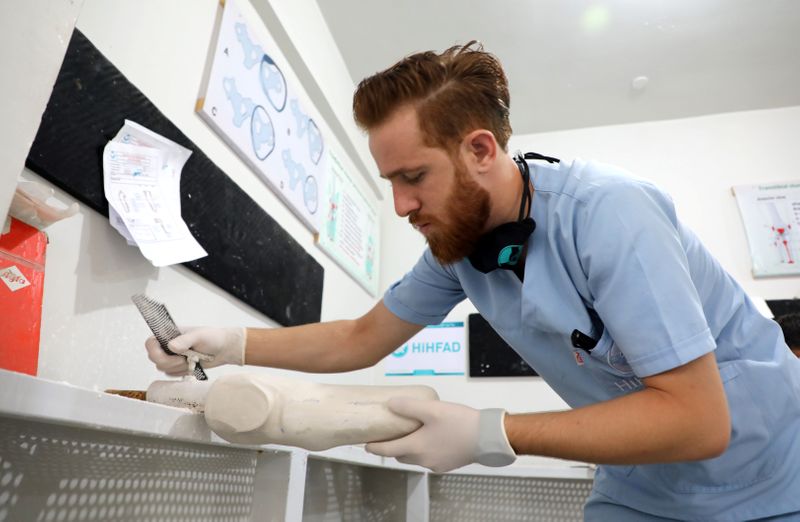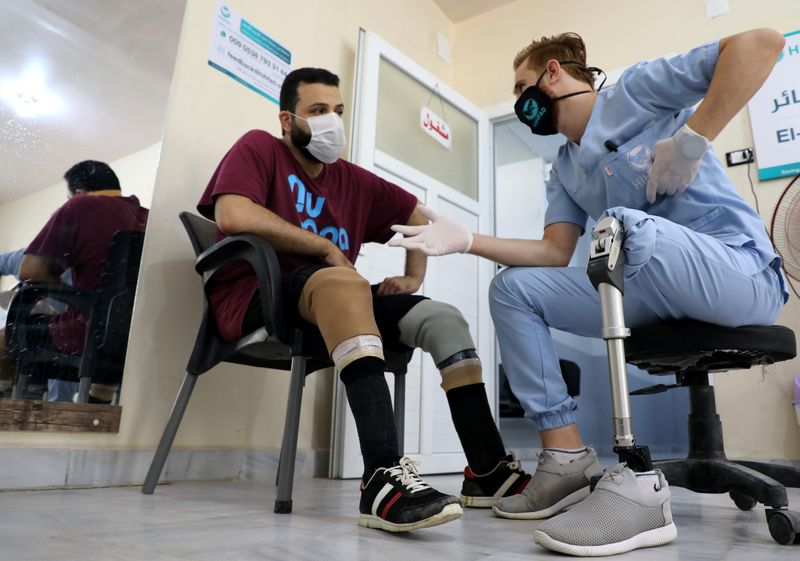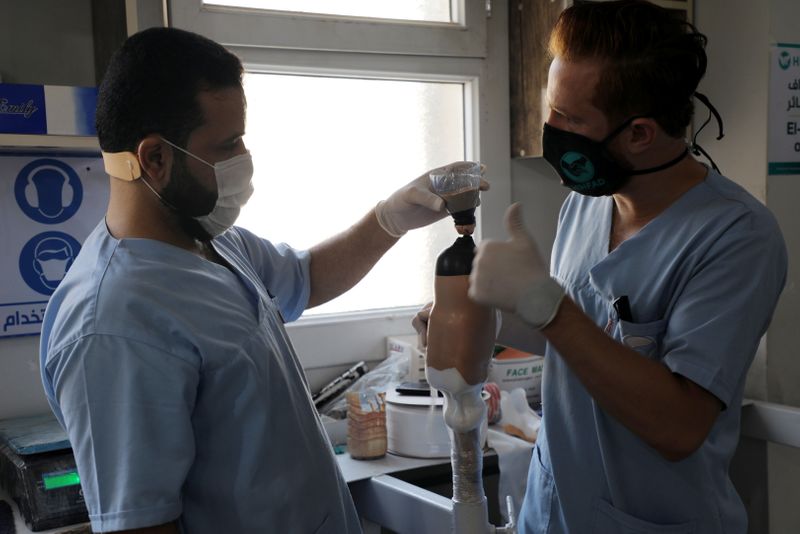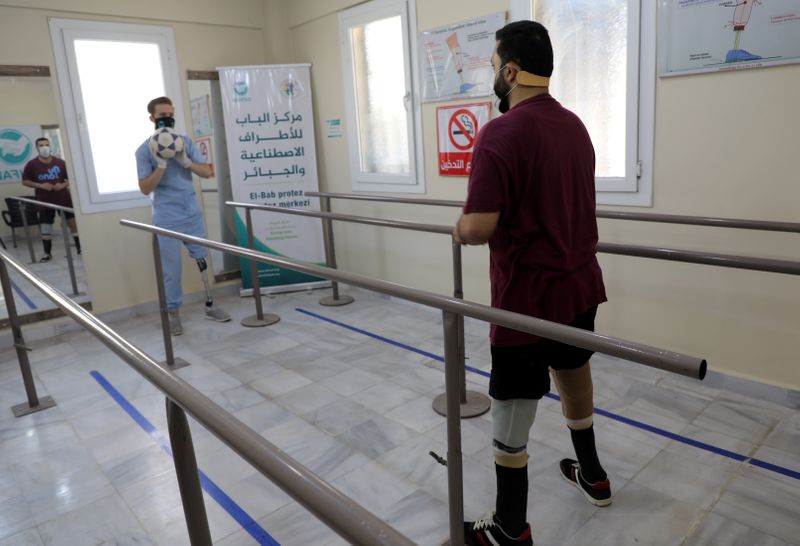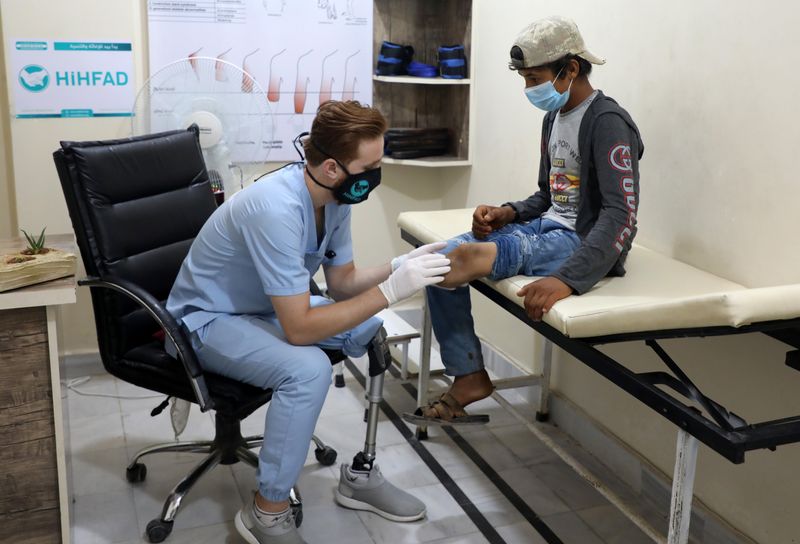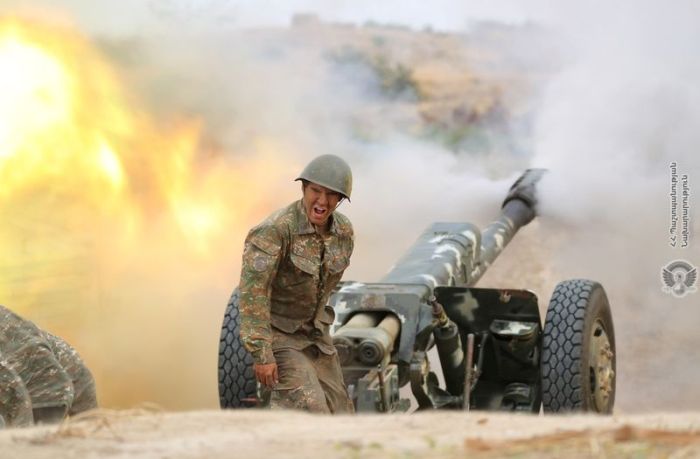ALEPPO PROVINCE, Syria (Reuters) – Abdelmawla Ibrahim was only 16 when he felt his life was over. While driving through a checkpoint with his family in northern Syria, a stray bullet pierced his left leg, shattering his bones and forcing doctors to amputate it above the knee.
“I hated myself, hated my life, I was very depressed,” said Ibrahim, now 24.
But the Syrian man, who lives in the city of al-Bab near Aleppo, said his outlook on life changed after he was fitted with a prosthetic leg.
This inspired him to get certified as a physiotherapist specialised in prosthetics.
Ibrahim now works at the al-Bab Centre for prosthetics, funded by a UK-registered charity, Hand in Hand for Aid and Development, that provides medical aid across Syria.
He designs and develops the prosthetics, drawing on his own experience of wearing them, and provides physiotherapy, and pep talks, to other amputees who visit the centre.
“I’ve been working in this field for seven years … Many people were responsive to me, seeing as I’ve already been through the challenges that they are going through,” he said.
Abdelrahim Khlouf, head of the al-Bab centre, said there were tens of thousands of people who have lost limbs in the country’s north in Syria’s nine-year multi-sided war.
According to a report published by the United Nations International Children’s Emergency Fund in 2018, more than 1.5 million Syrians are now living with permanent impairments caused by the conflict, including 86,000 who have lost limbs.
The report adds that many suffer from a lack of access to proper medical or psychological care, and often face exclusion from their societies.
Ibrahim, who recently got married, said his dream now is to continue his education abroad to gain more knowledge to help others who have lost limbs.
(Reporting by Mahmoud Hasano; Writing by Bushra Shakshir and Emelia Sithole-Matarise; Editing by Janet Lawrence)

